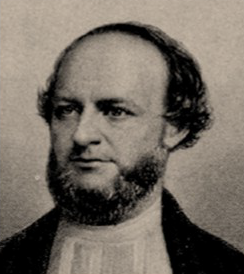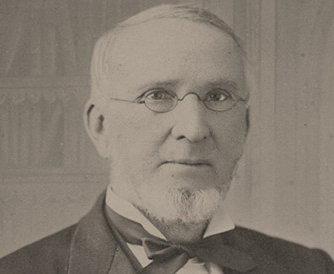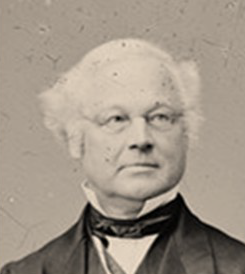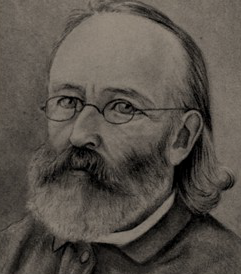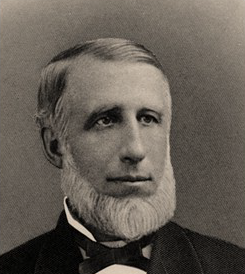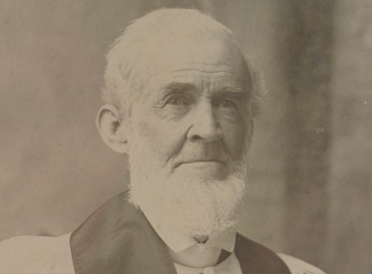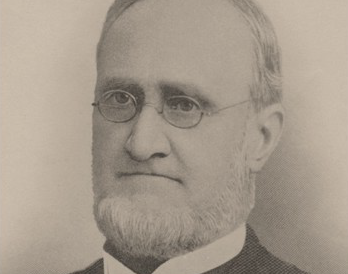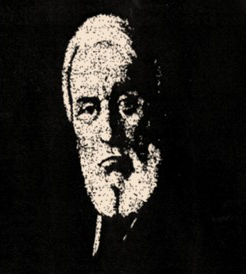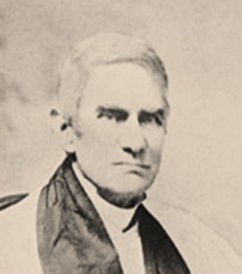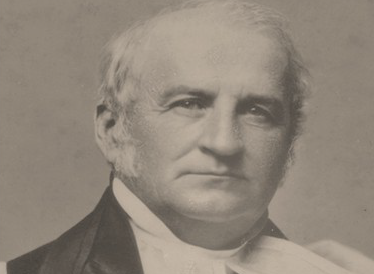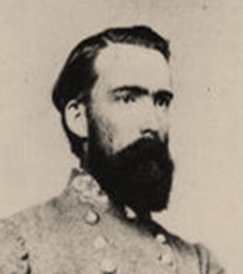Saint Augustine’s University was chartered as a “Normal School and Collegiate Institute” on July 19, 1867, by the Reverend J. Brinton Smith, D.D., secretary of the Freedman’s Commission of the Protestant Episcopal Church, and the Right Reverend Thomas Atkinson, D.D., Bishop of the Diocese of North Carolina. Bishop Atkinson became the first president of the Board of Trustees and Dr. Smith was the first principal. The new school opened its doors for instruction on January 13, 1868.
In 1893, the School’s name changed from Saint Augustine’s Normal School to Saint Augustine’s School. In 1919, the name changed to Saint Augustine’s Junior College, the first year in which postsecondary instruction was offered. The School became a four-year institution in 1927. In 1928, the institution was renamed Saint Augustine’s College. Baccalaureate degrees were first awarded in 1931.
Under the direction of Rev. Henry B. Delany, the students quarried the stones for the construction of the Saint Augustine’s Historic Chapel, and laid the cornerstone in 1895. The construction was completed in December 1895. Finally on October 11, 1897, the chapel was consecrated “Saint Augustine’s Chapel” by the Rt. Rev. Joseph Blount Cheshire, Bishop of the Episcopal Diocese of North Carolina. The Chapel is listed on the National Register of Historic Places.
In 1896, the College further extended its mission by establishing St. Agnes Hospital and Training School for Nurses to provide medical care for and by African Americans. It was the “first” school of nursing in the state of North Carolina for African-American students and served as the only hospital that served African Americans until 1960. One of St. Agnes most famous patients was boxer Jack Johnson. Following an accident that ultimately led to his death in 1946, boxer Jack Johnson was taken to St. Agnes Hospital. Johnson was the first African-American world heavyweight boxing champion.
Another “first” Saint Augustine’s University is especially proud of is that the University was the nation’s first historically black university to own an on-campus commercial radio station (WAUG-AM 750) and television station (WAUG-LD). WAUG 750 currently rebroadcasts hip hop and R&B from Hot 97.9 FM. WAUG-LD currently is found locally on TV 8, Spectrum 1231 and now has streaming apps on Roku, Apple TV and Amazon FireTV.
Since the beginning of its existence, Saint Augustine’s University has blazed the trails in academics. Alumna Anna Julia Cooper, who was a prominent writer, educator and scholar, became the fourth African-American woman in United States to earn a doctoral degree. Today, Saint Augustine’s University is proud of preserving its legacy by continuing to ensure scholars are academically equipped to be the global change agents of tomorrow.
Falcons not only soar in academics but also in athletics. The men’s track and field team has experienced the victory of being Number #1 on numerous occasions. Saint Augustine’s University’s track and field programs have won an astounding 39 national championships, and have produced over 40 Olympians including three gold medalists.
On August 1, 2012, Saint Augustine’s College transitioned in name and status to Saint Augustine’s University.
In 2020, the University became the first historically black university to start a cycling team, and in 2022 the first to also launch a women’s rowing team.
Saint Augustine’s University has a strong tradition of excellence and a rich legacy that bonds thousands of Saint Augustine’s University sons and daughters from across the globe.
FOUNDERS
Aldert Smedes
Armond J. Derosset
Edward M. Forbes
J. Brinton Smith
John Wilkes
Joseph B. Cheshire
Kemp P. Battle
Richard H. Smith
Richard S. Mason
Thomas Atkinson
William R. Cox
SAINT AUGUSTINE OF HIPPO

Written by Rev. Nita Byrd
The patron Saint of Saint Augustine’s University is Augustine of Hippo. Saint Augustine was born on November 13, 354 CE in Thagaste, Numidia, a province in North Africa which is present day Algeria. His father was not a Christian, but Saint Monica, his mother, was a devoted Christian who prayed constantly for Augustine. These were much needed prayers for Augustine because he scorned Christian doctrine and scriptures, lived a notorious lifestyle and followed the teachings of the heretical Manicheans, a group who distorted Christian teachings and rejected the Old Testament. The Manicheans with their dualistic understanding of the human condition gave Augustine the license to escape any form of moral responsibility. However, the prayers of his mother were answered when Augustine heard the preaching of Saint Ambrose of Milan. It was not long before he converted to Christianity under the tutelage of Saint Ambrose. Subsequent to his baptism, he became a priest and later a bishop.
Saint Augustine is one of the most famous and influential theologians and writers of Western Christianity. He was a strong supporter of the poor and a defender of orthodox Christianity. His autobiographical work Confessions is a classic of western literature, and provides inspiration to anyone who strives to live a virtuous life. Augustine’s writings describe our dependency on God for the grace to live a holy life, and express our human longing for God. He states, “You arouse us so that praising you may bring us joy, because you have made us and drawn us to yourself, and our heart is unquiet until it rests in you” (Confessions, Book 1). The restlessness in the human heart that longs for God is represented by Saint Augustine’s symbol, a flaming heart, pierced by arrows. The flaming heart symbolizes Saint Augustine’s love of God and humanity, while it is alive and restless with a desire to know God’s divine love. The arrows piercing the heart represent God’s love piercing our hearts. Such an image reminds us that because we are made in the image of God we must be in relationship with God. We share the common call on our lives to be continually formed into God’s perfect image of love – the same call that pierced Saint Augustine’s heart causing him to seek God in all things.
CELEBRATE LEGACY

#HistoryStartsHere
Click here to take a look back of SAU’s Black History Month tributes →
SAU Honors
Celebrate the legends that punctuate SAU’s legacy with this 2017 Black History Month video series, which also celebrated the University’s sesquicentennial.

